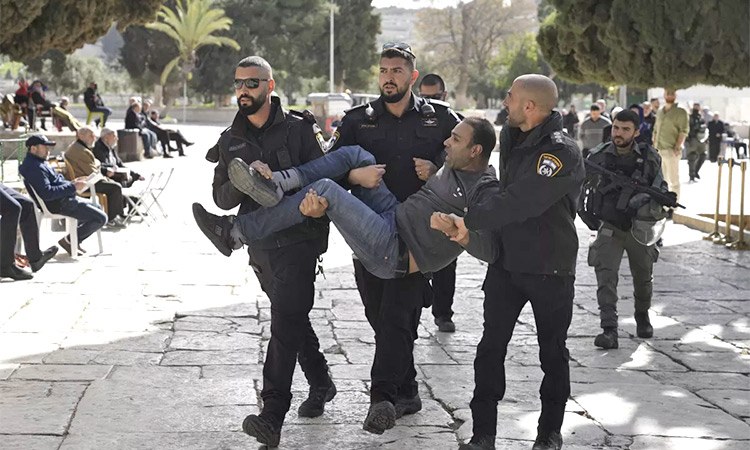Path to peace

The clashes at Al Aqsa come amid a wave of deadly violence, which has sparked fears of a wider conflict.
Various attempts have been made to resolve the conflict as part of the Israeli–Palestinian peace process. In statements released after both calls, the UN said Guterres discussed “efforts to lower tensions, end provocations and unilateral steps, and restore calm.”
Attempts to solve the early conflict culminated in the 1947 United Nations Partition Plan for Palestine and the 1947–1949 Palestine war, marking the start of the wider Arab–Israeli conflict. The current Israeli-Palestinian status quo began following Israeli military occupation of the Palestinian territories in the 1967 Six-Day War.
The clashes at Al Aqsa come amid a wave of deadly violence, which has sparked fears of a wider conflict. Rocket launches from the Gaza Strip on Wednesday and Thursday prompted retaliatory strikes from Israel.
In May last year, amidst rising tensions, the 2021 Israel–Palestine crisis began with protests that escalated into rocket attacks from Gaza and airstrikes by Israel. Since 2006, the Palestinian side has been fractured by conflict between two major factions: Fatah, the traditionally dominant party, and it’s later electoral challenger, Hamas. After Hamas’s electoral victory in 2006, the Quartet conditioned future foreign assistance to the Palestinian National Authority (PA) on the future government’s commitment to non-violence, recognition of the State of Israel, and acceptance of previous agreements.
Abu Ali
By email







